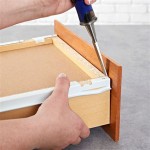Essential Aspects of Choosing the Best Stain for Unfinished Kitchen Cabinets
When it comes to updating your kitchen, one of the most cost-effective and impactful changes you can make is to stain your unfinished kitchen cabinets. However, choosing the right stain is essential to achieve the desired look and durability.
Factors to Consider When Selecting a Stain
1. Wood Species
The type of wood used for your cabinets will influence which stains are suitable. Softwoods, such as pine, absorb stain more readily than hardwoods, like oak or maple. This can affect the intensity and tone of the stain color.
2. Existing Finish
If your cabinets have been previously finished with paint or a different stain, you may need to remove or sand the existing finish before applying a new stain. This will ensure that the new stain adheres properly.
3. Desired Color and Finish
The color and finish of the stain you choose will significantly impact the overall look of your kitchen. Consider the existing décor and desired ambiance when making a decision.
4. Sheen Level
Stain sheen levels range from matte to glossy. Higher sheen levels provide a more formal and polished appearance, while matte finishes offer a more rustic and understated look.
5. Durability
The durability of a stain refers to its ability to resist wear, moisture, and fading. Choose a stain that is appropriate for the level of use and wear your cabinets will receive.
Popular Stain Types
1. Water-Based Stains
Water-based stains are easy to apply, dry quickly, and produce a more even color than other types. They are also less toxic and have less odor.
2. Oil-Based Stains
Oil-based stains penetrate deeply into the wood, resulting in a rich and durable finish. They require more time to dry and have a stronger odor than water-based stains.
3. Gel Stains
Gel stains have a thicker consistency, making them ideal for vertical surfaces or detailed areas. They offer high pigment concentration, producing bold and intense colors.
Tips for Staining Unfinished Kitchen Cabinets
1. Test the Stain
Apply the stain to an inconspicuous area first to test the color and finish. This will help you determine any adjustments or modifications you need to make.
2. Prepare the Surface
Sand the cabinets thoroughly to smooth the surface and remove any previous finish or imperfections. Use a tack cloth to remove dust before staining.
3. Apply the Stain
Use a brush or rag to apply the stain evenly, following the grain of the wood. Allow the stain to penetrate for the recommended time before wiping off any excess.
4. Protect the Finish
After the stain has dried, apply a polyurethane or varnish to protect it from wear and moisture. Allow several days for the finish to fully cure before using the cabinets.
By carefully considering the factors and following these tips, you can choose and apply the best stain for your unfinished kitchen cabinets, transforming the look of your kitchen with a beautiful, durable finish.
How To Stain Unfinished Cabinets Painting By The Penny

How To Make Rustic Kitchen Cabinets By Refinishing Them The Best Stain Color Amanda Katherine

Cabinet Stain Colors Staining Cabinets Wood

How To Stain Unfinished Cabinets Painting By The Penny

How To Finish Wood Cabinets Cabinet Doors N More

Unfinished Cabinets Pros Cons And Guide

How To Stain Unfinished Cabinets Painting By The Penny

Unfinished Cabinets Guide Customization Savings And Creative Possibilities

Unfinished Kitchen Cabinets The Best Kept Secret To Creating A Customized And Affordable Culinary Haven

The Do S And Dont Of Staining Maple Cabinet Doors Cabinetdoors Com
Related Posts








